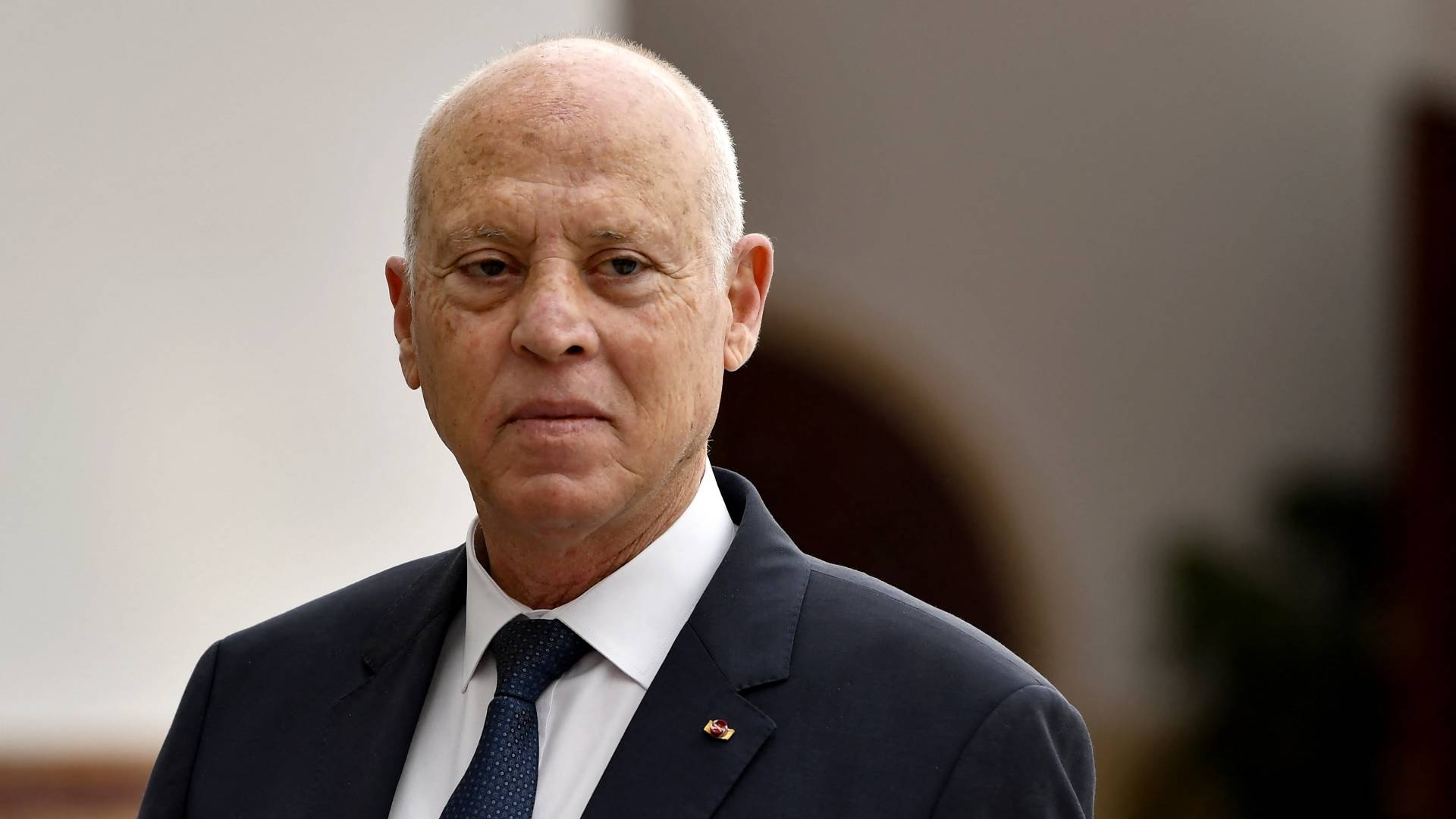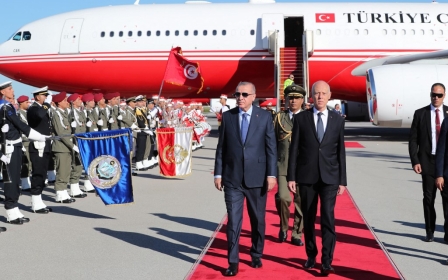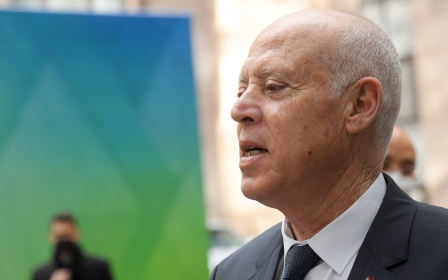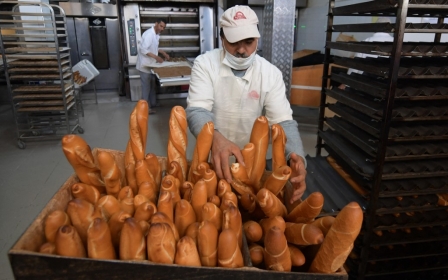Tunisia: President Saied to change structure of elections authority ahead of national vote

Tunisian President Kais Saied announced on Wednesday that the Independent High Authority for Elections (ISIE) committee would supervise the upcoming elections after its structure was altered.
Saied, who dissolved the national parliament last week, had long questioned the role of the ISIE, which was formed following the 2011 uprising in Tunisia to monitor the democratic transition of power and voting in the country.
'The president is illegally and arbitrarily changing the rules of play, deciding who should play, and selecting the arbiter as well'
- Said Benarbia, International Commission of Jurists
The ISIE has nine members. It has 27 branches around the country to monitor elections, and six branches to serve Tunisian expats - four in Europe, one in Canada and one in the United Arab Emirates.
Critics of Saied said he is attempting to roll back almost a decade of institution-building by Ennahda and other political parties since 2011.
New MEE newsletter: Jerusalem Dispatch
Sign up to get the latest insights and analysis on Israel-Palestine, alongside Turkey Unpacked and other MEE newsletters
"The president is illegally and arbitrarily changing the rules of play, deciding who should play, and selecting the arbiter as well," said Said Benarbia, Middle East and North Africa director at the International Commission of Jurists. "Rampant, unbridled authoritarianism in full display," he wrote on Twitter, commenting on Saied's decision.
On Wednesday, Saied said during a visit to the tomb of the late president Habib Bourguiba that "dialogue with national organisations is the beginning and we will continue [it] with the parties, but there will be no dialogue with thieves and with the putschists," a reference to opposition parties.
It is not the first time Saied has used derogatory language against his opponents, whom he accuses of conspiring against the state.
Last week, his government asked an anti-terror squad to summon several MPs, including the Ennahda leader, Rached Ghannouchi, for questioning. The MPs had convened an online parliamentary session last week to vote on the controversial measures taken by Saied last July, which included the suspension of parliament and the sacking of the prime minister, along with the seizure of judicial and legislative powers.
Saied hit back by dissolving the parliament and ruling out early elections.
On Wednesday, he said that any upcoming elections would take place in two rounds and that party lists would be replaced by direct voting for individual candidates.
"The national dialogue has been launched, and the national consultation will be the basis of the dialogue, and a new constitution will be prepared, and the word will be for the people through a referendum," he added.
Spat over Erdogan criticism
Also on Wednesday, Tunisia summoned Turkey's ambassador, in protest against what Tunis said was an "interference", after President Recep Tayyip Erdogan criticised Saied for dissolving the country's parliament. Erdogan said on Monday: "We hope that these developments won't harm the transition period to restore democratic legitimacy and we value the realisation of the roadmap for elections."
Tunisia's foreign ministry issued a statement voicing "surprise" at Erdogan's comments, calling it "unacceptable interference" in Tunisia's domestic affairs.
Othman Jerandi, Tunisia's foreign minister, had spoken by telephone with his Turkish counterpart Mevlut Cavusoglu and summoned Ankara's ambassador in protest on Wednesday.
This article is available in French on Middle East Eye French edition.
Middle East Eye delivers independent and unrivalled coverage and analysis of the Middle East, North Africa and beyond. To learn more about republishing this content and the associated fees, please fill out this form. More about MEE can be found here.




